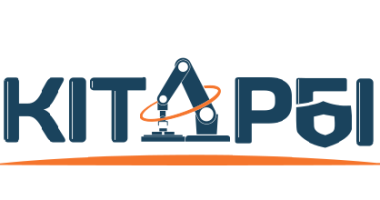Data about resources of the educational process on the educational programs of CITAM department
The Department of Computer-Integrated Technologies, Automation and Mechatronics conducts training of applicants for the following educational programs: “Automation and Computer-Integrated Technologies” and “System Engineering” first (bachelor’s) level of higher education; “Automated control of technological processes”, “Computer-integrated technological processes and production”, “Computerized and robotic systems” second (master) level of higher education; “Automation and computer-integrated technologies” the third (educational-scientific) level of higher education within the specialty 151 Automation and computer-integrated technologies; “Radio-electronic devices” and “Intelligent technologies of radio-electronic means” the first (bachelor’s) level of higher education; “Intelligent Technologies of Microsystem Radioelectronic Equipment” the second (master) level of higher education within the specialty 172 Telecommunications and Radio Engineering.
To train applicants for educational programs, the department uses in-university laboratories, laboratories of general educational departments and the laboratories in the squares of which it is located.
The department has the following classrooms for classes:
– laboratory number 159 training laboratory “Integrated Systems Automation” for lectures, workshops, laboratory work, independent work of applicants;
– laboratory number 160-2 educational and research laboratory “Technical means of automation” (Problem research laboratory “Microelectromechanical and microoptoelectromechanical systems”) for practical training, laboratory work, independent work of applicants;
– lecture room No. 162-1 training laboratory “Computer Aided Design (CAD)” for lectures, practical exercises, laboratory work, independent work of applicants;
– laboratory No. 162-2 educational and research laboratory “Automation of production and robotics” (Student Design and Technology Bureau for “Robotics and Mechatronics”) for lectures, practical exercises, laboratory work, independent work of applicants;
– laboratory number 162-3 training laboratory “Technology of telecommunications” for practical training, laboratory work, independent work of applicants;
All laboratories of the department have passports, which are reviewed and approved annually.
To provide applicants with information resources at the department are: a teaching room or a full set of methodological support in paper form, which is stored at the department and is available to each applicant; access to the university’s internal information network is provided, which allows the use of CSMP located in the scientific library; KNURE scientific library has access to online databases, the services of which can be used by any applicant for higher education and an employee of the university, for example, the legal database “League: Law”; electronic versions of textbooks published by TsUL publishing house – “Center for educational literature”; electronic magazines: “Information security. INSIDE “; “Information Security”; Online journals for the eLIBRARY scientific library.
Training laboratories are equipped with all the necessary modern equipment, including multimedia, for the implementation of educational programs for which jobseekers are trained.
To acquire skills in working with the equipment at the department, laboratories are available that are equipped with the following equipment: the CAMOZZI Automation educational and scientific complex (SUA00-5118-B00001), the ARIES laboratory stand; POHTEK ATM layout coin machine; banknote packer; automatic currency detector; manual currency detector; Super SCAN detector; DVR Oscilloscopes DS-5102 C, C1-55; laboratory bench for research of industrial protocols laboratory bench for research of control methods of executive devices; Bonding machine (laminator) OHASHI ABM-411; Tradex insertion machine TS2TT; Tradex insertion machine TS2; Tradex insertion machine TS1; Dinamic Ultrasonic press-Dynamic 746; Bursting machine P5; device of ultrasonic welding Dynamic 745; Tesla BM-560 Q factor meter; generator G3-112; profilometer “Caliber” 170621; ultrasonic flaw detector UKS-1; hardness tester TD-32M; measuring complex VK-2; Teraohmmeter E6-13A; ohmmeter P380; research model of the properties of piezoelectric materials; 3D printer using FDM technology with Delta kinematics and the ability to trecolor printing; laser engraver for engraving and cutting materials from wood, leather and plastic; industrial robot RM-01; MPLU200 robot; RF-202m robot; installation of automated soldering UAP-1; NXT MindStorms mobile work; Arduino Robot mobile platforms Festo Robotino mobile platform Arduino Robot mobile platforms programmable manipulators MR-999e; computer vision systems based on WEB cameras; laboratory models for the study of diagnostic methods for CEA; multifunctional laboratory prototype AVR ATMEGA 128; welding equipment, device for welding optical fiber, installation of welding KCC 111; display unit OMKZ-76; power supply unit TEC13; optical fiber welding equipment ARC FUSION FIBER; PID regulators TRM-32-1000m; OMO interferometer; reflectometer; a device for measuring electrical values of a recording device; a complex of microelectronic means.
The computer park of the department is 44 units. All computers have a modern element base and were purchased no more than 8 years ago. The software is publicly available on the Internet.
The amount of equipment and software is enough to conduct a full cycle of training of applicants for educational programs.
If necessary, the department uses the computer rooms of the university’s information and computing center with the necessary software and lecture halls, laboratories and computer classes of the Synergy Science Park, and also draws up applications for the purchase of equipment, software and materials necessary for the further provision of the educational process.
Qualitative training of applicants for all educational programs is carried out by teachers of the department, including 8 doctors of sciences, professors; 4 doctors of sciences, associate professors; 1 candidate of sciences, professor 14 candidates of sciences, associate professors; 9 candidates of science; 4 senior teachers; 6 assistants.
All of them have qualifications corresponding to the specialties in which the training of applicants is carried out, conduct scientific activities, manage the scientific work of applicants with sufficient work experience and timely undergo further training or internships.
To improve the quality of training for the preparation of applicants, the department attracts leading specialists and practitioners in production.

